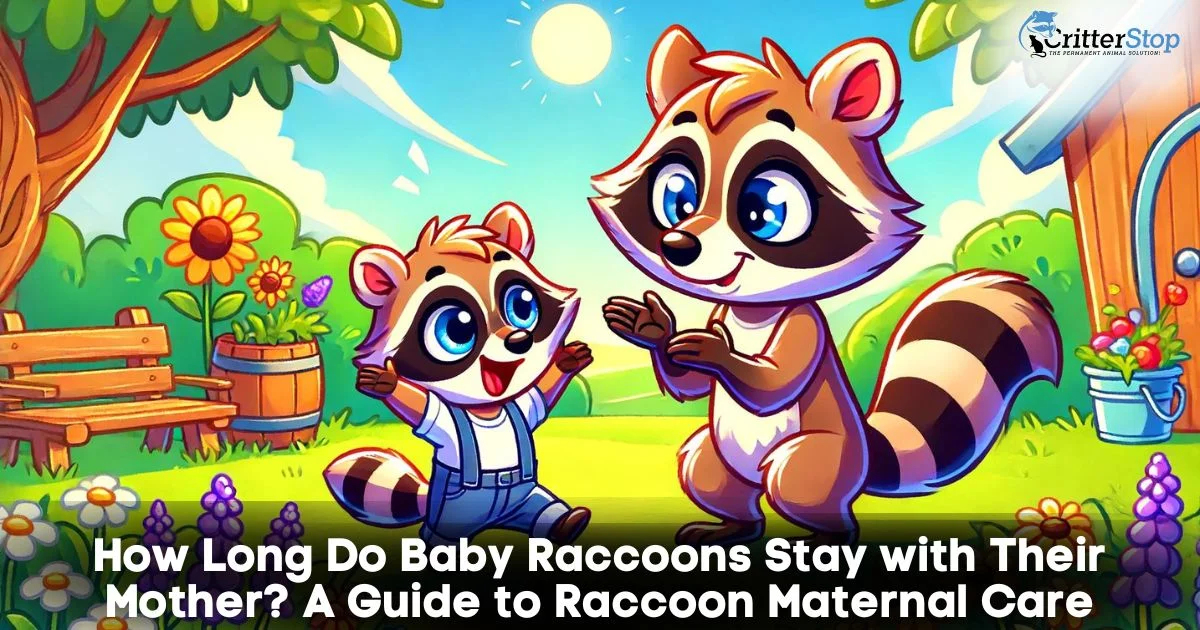
Baby raccoons, also known as kits, are born in the early spring and spend the first few weeks of their lives in their den. As they grow, they become more adventurous and explore their surroundings. However, they do not leave their mother's side until they reach an age where they can care for themselves independently.
The length of time that baby raccoons stay with their mother varies depending on a few factors. They will generally stay with their mother for about 8-10 months. During this time, the mother teaches them important survival abilities like searching for food, scaling trees, and evading predators. Once fully independent, they will leave their mother and establish their territories.
It is important to note that interfering with a mother raccoon and her babies can be dangerous and should be avoided. Raccoons are recognized for their protective nature towards their offspring and may display aggression when they perceive a threat. It is best to observe these fascinating creatures from a safe distance and let them live their lives undisturbed.
Raccoon mothers are known to be very attentive to their young ones. They form a strong bond with their babies and take good care of them. The mother raccoon will nurse her young ones for about two to three months, until they are old enough to start eating solid food. During this time, the mother raccoon will spend most of her time with her babies, keeping them warm and protected.
Mother raccoons are known to be nocturnal animals, which means they are active during the night. However, when they have babies to take care of, they will adjust their daily routine to meet the needs of their young ones. This means that they will spend most of their time during the day with their babies, keeping them warm and protected. Mother raccoons also leave their young during the day to search for food. They come back in the evening to nurse and provide warmth to their babies.
It is important to note that mother raccoons do not leave their offspring unattended for extended periods. They will always keep a close eye on their young ones and will return to them as soon as possible. Raccoons are also known to have a lifespan of about three to four years in the wild, which means that the mother raccoon will only have a few years to raise her young ones before they become independent.
In conclusion, mother raccoons are highly attentive to their offspring and develop a strong bond with them. They adjust their daily routine to meet the needs of their babies and will always keep a close eye on them. Raccoons typically live with their mother for about two to three months before becoming independent.
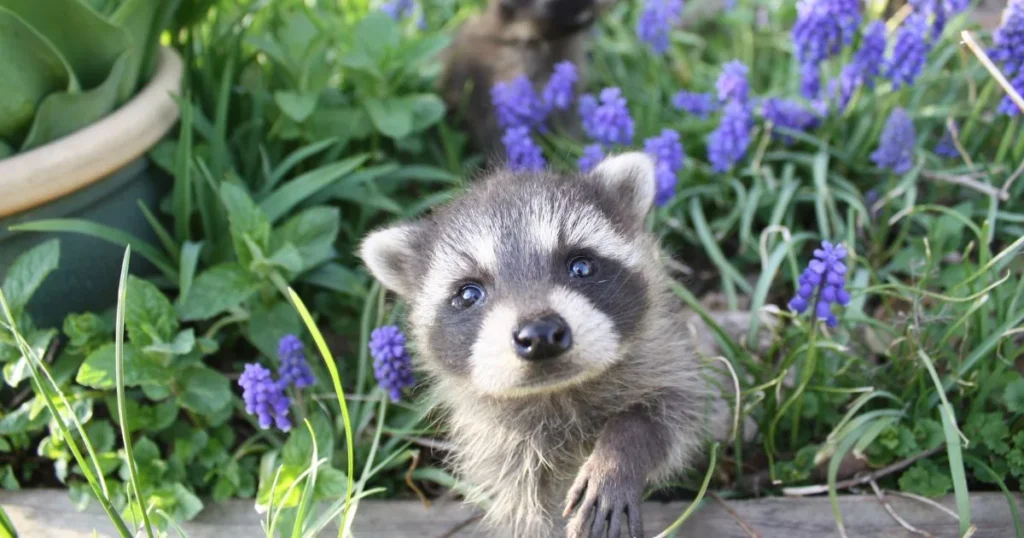
Baby raccoons are born blind, deaf, and toothless. They typically weigh between 2.5 and 5 ounces at birth and rely entirely on their mother for survival. The mother raccoon provides warmth, milk, and protection to her young ones during this period. The newborns develop teeth at around two weeks of age and open their eyes at three weeks.
When baby raccoons reach four weeks, they move around more and explore their surroundings. They also begin to develop their sense of smell and hearing, which helps them locate their mother and siblings. At this stage, the mother raccoon introduces solid food to her young ones, but they still rely heavily on her milk.
Weaning begins when the baby raccoons are around seven to eight weeks old. They start to eat solid food and become more independent. The mother raccoon encourages her young ones to become more self-sufficient and spends less time with them.
Baby raccoons develop their sensory and motor skills gradually over time. They start to crawl at around three weeks and begin to walk at four weeks. By the time they reach six weeks of age, they can run, climb, and swim.
Their sense of smell is well-developed from birth, but their hearing and vision take some time to develop fully. They start to hear at around two weeks of age and begin to recognize sounds at four weeks. Their eyes start to open at three weeks, but it takes another week or two for their vision to become clear.
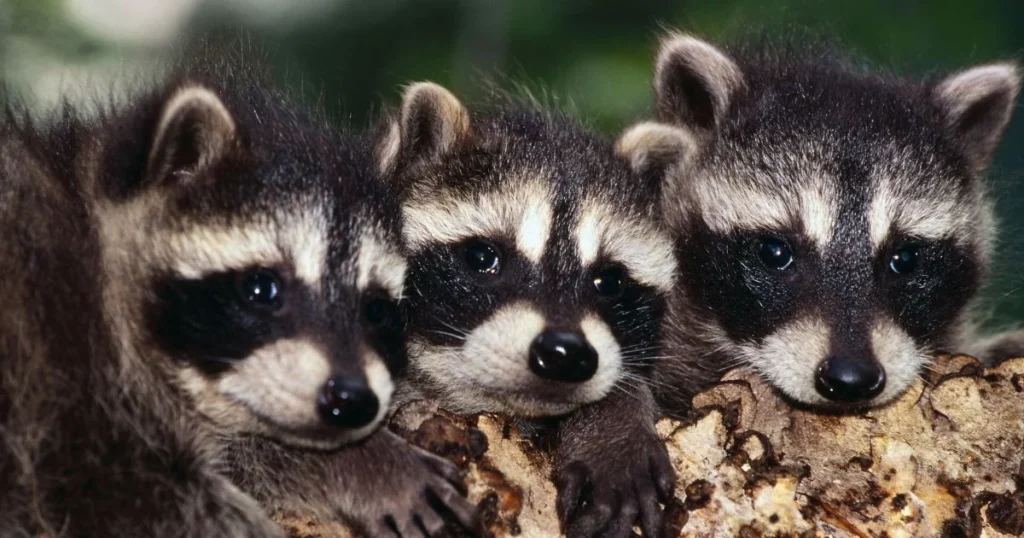
Baby raccoons start to open their eyes at around three weeks of age. However, their vision is still blurry at this stage, and it takes another week or two for their eyesight to become clear. The mother raccoon closely monitors her young ones during this period and helps them navigate their surroundings.
In summary, baby raccoons undergo several developmental milestones from birth to weaning. They start blind, deaf, and toothless but gradually develop their senses and motor skills over time. The mother raccoon plays a crucial role in their development, providing warmth, milk, and protection. Baby raccoons open their eyes at around three weeks and become more independent as they grow older.
Baby raccoons typically stay with their mother until they are around 8 to 10 months old. During this time, they go through a weaning period where they gradually transition from their mother's milk to solid foods. This process typically takes about 4 to 6 weeks and is finished by the time the baby raccoons reach approximately 12 weeks of age.
Once the weaning period is complete, baby raccoons are ready to leave the nest and become independent. However, they don't immediately leave their mother's side. Instead, they stay with her for a few more months to learn important survival skills such as hunting, foraging, and avoiding predators.
Baby raccoons usually start to venture out independently when they are between 6 to 9 months old. By this time, they are completely weaned and have acquired the essential skills to thrive on their own. However, they may still return to their mother for a few more weeks or months for occasional nursing and guidance.
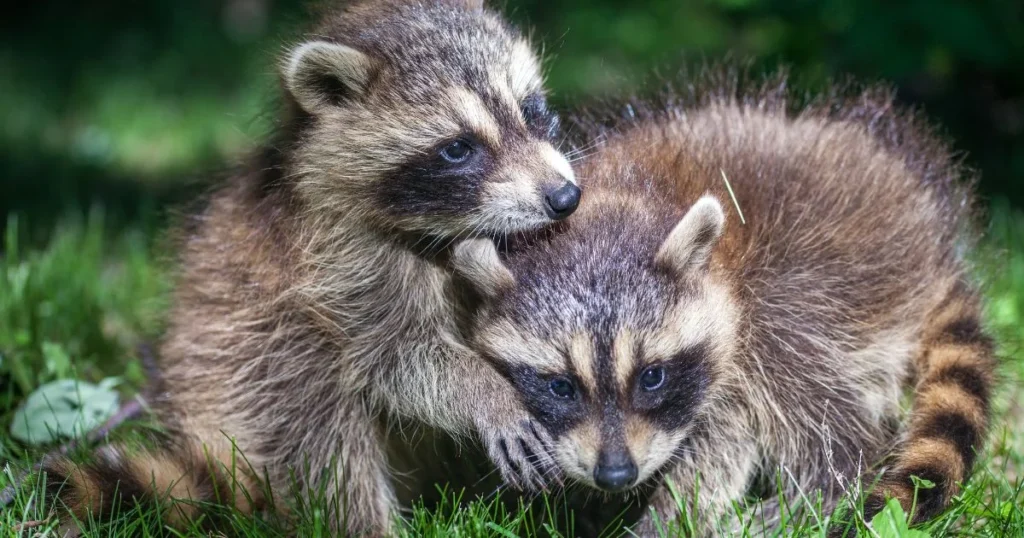
Overall, baby raccoons stay with their mother for around 8 to 10 months before becoming fully independent. During this time, they go through a weaning period and learn important survival skills before venturing out on their own.
When baby raccoons are left without their mother, they must learn to survive on their own. This can be a challenging experience for them, but they do have some coping mechanisms that help them adapt to their new situation.
One of the ways that baby raccoons cope without their mother is by forming small groups with other raccoons. These groups provide a sense of security and help the babies learn important survival skills from their peers. They also learn how to find food, water, and shelter on their own.
Another coping mechanism that baby raccoons use is to become more active at night. This allows them to avoid predators and stay safe while they search for food and water. They can also move about more freely without the risk of being noticed by humans.
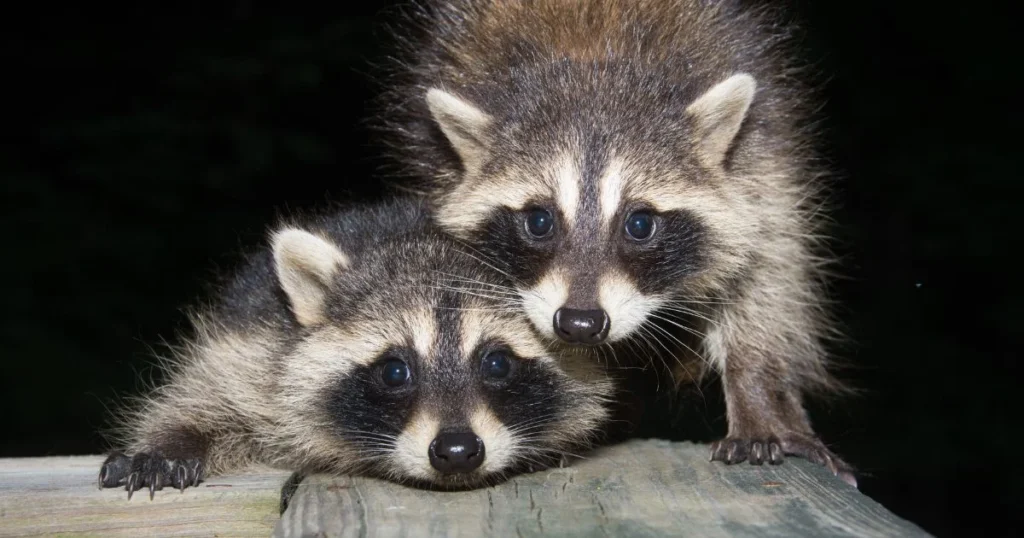
Despite these coping mechanisms, baby raccoons still face a number of risks and challenges when they are left without their mother. For example, they may not be able to find enough food or water to survive. They might also face the danger of predator attacks or collisions with vehicles.
In addition, baby raccoons that are left without their mother may not develop important social skills that are necessary for their survival. For example, they may not learn how to communicate with other raccoons or how to defend themselves from predators.
Overall, baby raccoons can survive without their mother but face several challenges. It's crucial for them to have access to food, water, shelter, and the opportunity to interact with other raccoons. With these resources, they can learn important survival skills and thrive independently.
If you suspect of having baby raccoons on your property, at Critter Stop we are ready to pick them up and relocate them. As we are a humane removal company, we won’t split the family. If they are together, we will try to capture them together. Contact us at (214) 234-2616 for more professional guidance.
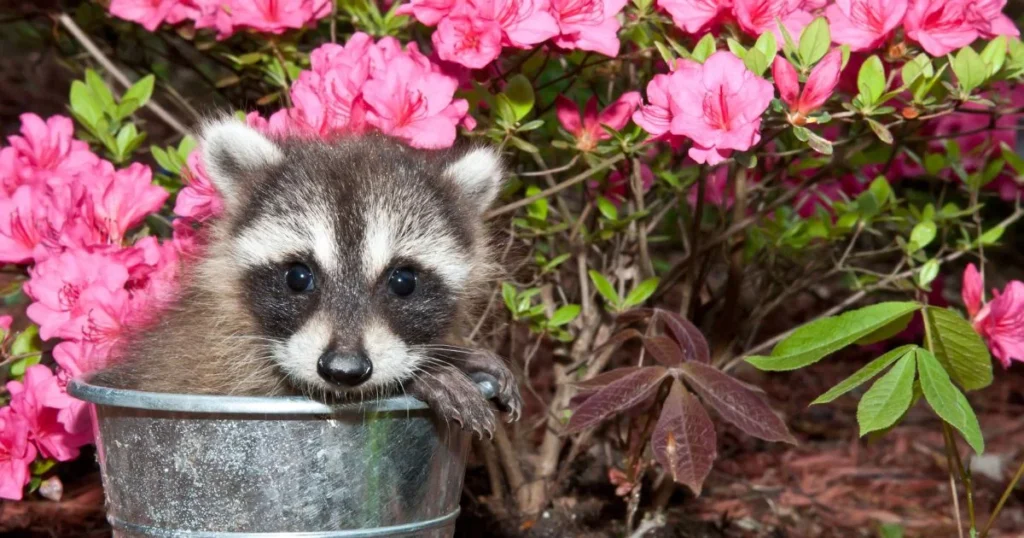
Baby raccoons, also known as kits, typically stay with their mother for about 8-10 months. During this time, the mother teaches them important survival skills such as hunting for food and avoiding predators.
Yes, mother raccoons may leave their babies during the day to search for food or water. However, they usually return to their den at night to care for their young.
Baby raccoons are dependent on their mother for survival and cannot live on their own until they are about 10 months old. If a baby raccoon is separated from its mother, it is unlikely to survive for more than a few days.
Raccoons typically leave their mother when they are around 8-10 months old. At this stage, they can take care of themselves and locate their own food.
Mother raccoons may leave their babies for short periods of time to search for food or water. Nevertheless, they are highly protective of their offspring and typically return to look after them.
Raccoon kits are born with their eyes closed and do not open them until they are approximately 3-4 weeks old.
Baby raccoons usually leave their mother when they are around 8-10 months old and are able to survive on their own. However, some raccoons may remain with their mother for up to a year before they start venturing out on their own.
Visit our Critter Library and learn more about our furry friends